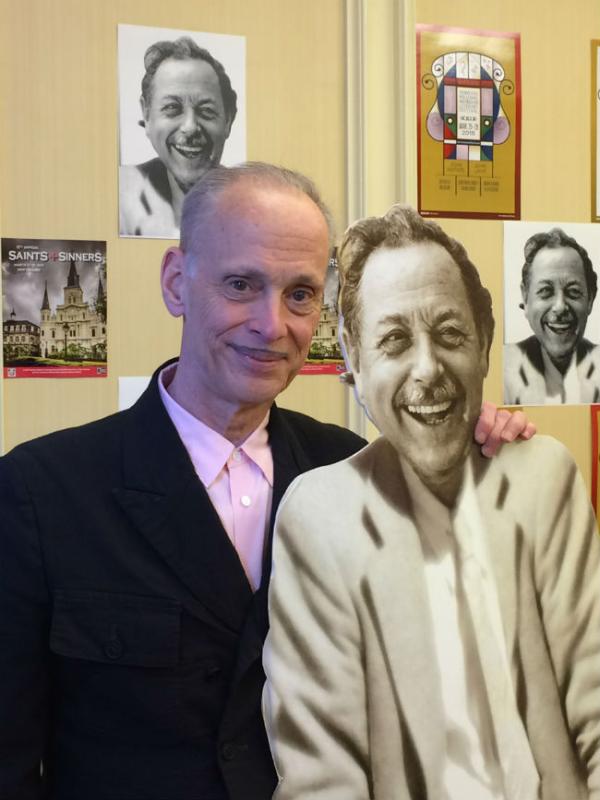Ending Isolation through Literature

When Paul Willis was growing up in rural Illinois, there wasn’t an LGBTQ student group at his high school, nor was there easy access to mentors, resources, or information. The same went for college. It wasn’t until Willis moved to Minneapolis after college that he encountered a visible LGBTQ community. This included the first gay bookstore he visited, A Brother’s Touch, where he discovered the work of mystery writer Michael Nava and memoirs by authors such as Felice Picano. “It helped alleviate the isolation because you’re aware that you’re not the only person in this situation,” Willis said. “I didn’t have access to other people to talk to. Books really opened up my self-discovery.”
For the past 13 years, Willis has worked to further expand avenues for LGBTQ authors and audiences through the Saints and Sinners Literary Festival in New Orleans. Willis founded the festival in 2003 as a personal passion, in part to raise awareness over HIV/AIDS. Since then, Saints and Sinners—an NEA grantee—has evolved to become a project of the Tennessee Williams/New Orleans Literary Festival, where Willis is executive director. Given the playwright’s status as a gay literary icon, Willis said the incorporation was “a natural fit,” and emphasizes how LGBTQ authors are an important part of New Orleans’ rich literary heritage.
Held over four days each spring, Saints and Sinners hosts panel discussions, workshops, an annual short fiction writing contest, and appearances by authors such as Michael Cunningham, Carol Seajay, G. Winston James, Val McDermid, and Andrew Holleran. For authors, Willis said the festival is a chance to network with colleagues, share ideas, and pursue publication opportunities. Given that writing involves long hours alone in front of the computer, Willis said “you don't necessarily have that opportunity to network with other writers, let alone other LGBT writers who are writing about similar issues or have had similar experiences.” The festival, he said, can fill that gap.
It can be just as meaningful for those who attend. Although Amazon has increased access to LGBTQ literature, and social tolerance and legal equality have drastically increased in recent years, Willis noted that, “depending on where you live in the country, there is still a lot of isolation.” He dreams of the day Saints and Sinners will be able to offer travel stipends for young people to attend the festival so that they can find a sense of community, just as A Brother’s Touch offered Willis so many years ago. “The more information you have, the less scary something is,” Willis said. “It's more the not knowing, or not knowing who you can talk to.”




